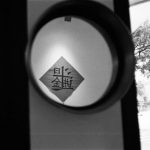How to Use Recordings as Evidence in Litigation in China?
The recording of your conversation, though recorded without your permission, may well be submitted as evidence in Chinese courts. This may be quite different from the rules of evidence in some other countries.
Therefore, you need to know how recordings are admitted as evidence in civil lawsuits in China.
I. What kind of recording evidence is legal?
As introduced in our previous post “Can Secret Recordings Be Used as Evidence in Chinese Courts?”, if the private conversation recording without the permission of the other party satisfies certain conditions, the court may admit it as evidence.
Previously, Chinese courts held that secret recordings were illegal and thus could not be used as evidence at all. However, such a rule excessively limited the means to collect evidence by the parties and therefore had been challenged and criticized by many. Later in 2001, Chinese courts relaxed the restrictions on secret recording, and admitted its status as evidence provided that it neither infringed upon the legitimate rights and interests of others nor violated the prohibitive provisions of the law. By 2015, secret recording can generally be used as evidence unless it “severely” infringes on the legitimate rights and interests of others, violates the prohibitive provisions of the law, or is collected in a way that violates public order and good morals.
II. What kind of recording evidence is reliable?
Chinese courts usually ascertain the authenticity of recording evidence from three aspects: the device used to record, the recording data and the content.
1. Reliable recording devices
Recording evidence is usually represented as electronic data formed by recording devices. When a party provides electronic data as required by Chinese courts, they must submit “the various storage media in which the electronic data was originally generated and first fixed.”
Therefore, you should preserve the recording device and the original file of the recording before presenting it to the court.
You can also provide a duplicate of the data, but you must show the process of duplication to the court to prove that the data is intact and has not been tampered with.
2. Reliable recording data
Chinese courts require you to prove the reliability and integrity of the hardware and software operating environment where recording files are generated, stored and transmitted. If there is no problem with the operating system, the judge can assume that the data it creates is reliable.
3. Reliable recording content
Chinese courts need to determine whether the recorded conversation is a true expression of the speaker’s intention without any kind of duress.
Firstly, the recording content should be intact and consecutive without being edited or forged.
The recording content being intact refers to two situations: (A) The recording file should be unedited after being formed. (B) The whole “event” should be recorded completely in the process of recording, not just the part that is favorable to yourself.
Secondly, recording should be formed and stored in the course of normal communication.
The “normal communication” has two implications: (A) The conversation of the parties being recorded must not happen under compulsion or duress. In other words, the recording should be formed during an ordinary interpersonal interaction that allows people to express themselves freely with their true meaning. (B) The recording should not be formed specifically for litigation and shall not have the nature of inducement.
Thirdly, the parties being recorded should appear in court.
If none of the parties being recorded appears for inquiries, the judge will refuse to grant the authenticity of the recording.
4. Presumption of the authenticity of recording evidence
It is required under Chinese laws that recording evidence be directly presumed to be authentic, under certain conditions, for instance:
- The content of the recording file is notarized by the notary organ;
- The recording which is unfavorable to the parties concerned is submitted or kept by themselves;
- The recording is provided or confirmed by a neutral third-party platform that records and preserves electronic data;
- The recording is formed in normal business activities;
- The recording is kept by the state archives; or
- The recording is saved, transmitted, and extracted in a way agreed upon by the parties.
III. What weight of recording evidence is assessed?
1. Doubtful recordings are inadmissible in court as the basis for fact-finding separately
“Doubtful” herein refers not only to its falsity and illegality but also to the following circumstances:
(A) The content of the recording is inconsistent with the actual situation;
(B) The content of the recording is contradicted by the facts that the parties state in court; or
(C) The content of the recording violates the logic or the rule of thumb of daily life.
2. The uncorroborated recording evidence is inadmissible in court as the basis for fact-finding separately
The judge needs to combine the recording with other evidence in the case to determine the facts.
If the facts of a case can only be proven by recording, it will lack clear and convincing evidence to allow the judge to form a rational determination of asserted facts.
Do you need support in cross-border trade and debt collection? CJO Global's team can provide you with China-related cross-border trade risk management and debt collection services, including: (1) Trade Dispute Resolution (2) Debt Collection (3) Judgments and Awards Collection (4) Anti-Counterfeiting & IP Protection (5) Company Verification and Due Diligence (6) Trade Contract Drafting and Review If you need our services, or if you wish to share your story, you can contact our Client Manager: Susan Li (susan.li@yuanddu.com). If you want to know more about CJO Global, please click here. If you want to know more about CJO Global services, please click here. If you wish to read more CJO Global posts, please click here.

Photo by Namroud Gorguis on Unsplash







